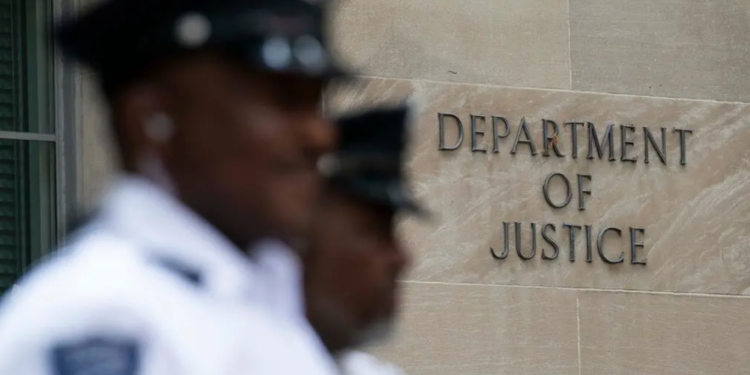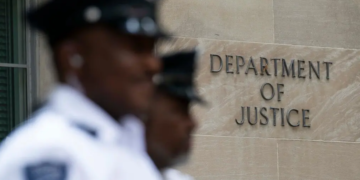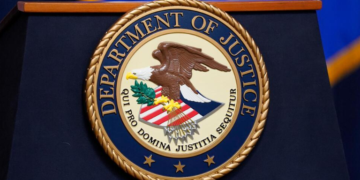Oct 29, 2024 Story by: Editor
WASHINGTON (Reuters) – Since President Joe Biden assumed office, the U.S. Department of Justice has initiated 12 investigations into possible civil rights abuses by police departments. However, none of these investigations have yet resulted in binding agreements to enforce reforms.
Upon entering office amid 2020’s nationwide protests over police violence against Black Americans, the Biden administration emphasized its commitment to police reform through “pattern or practice” investigations into systemic civil rights violations in local police departments.
Attorney General Merrick Garland moved quickly, opening inquiries into the Minneapolis and Louisville police departments in April 2021, following the deaths of George Floyd and Breonna Taylor, which sparked widespread demonstrations.
If former President Donald Trump wins the upcoming November 5 election, these probes could face termination before reaching the legally binding reform agreements known as “consent decrees.”
“This administration has certainly invested a lot of resources into these cases,” said Puneet Cheema, a manager at the NAACP Legal Defense Fund. “But I think the metric of whether these cases are successful is determined by how they are implemented.”
A Reuters review reveals that the pace of these investigations under Biden’s Justice Department has been slower than during President Barack Obama’s first term.
According to a department spokesperson, ensuring lawful and effective policing remains a “top priority,” with the department currently enforcing 16 existing agreements and launching 12 new investigations. The spokesperson affirmed, “The department is steadfast in its commitment to ensuring the civil and constitutional rights of all Americans.”
During Obama’s first term, 17 such investigations were opened, leading to settlements with cities such as Seattle, New Orleans, East Haven, Connecticut, and Portland, Oregon. An additional eight investigations and 14 more agreements or court-ordered reforms followed in Obama’s second term, most often involving consent decrees that mandate police departments to undergo systemic reforms under the oversight of an independent monitor.
Rodney King and Consent Decrees
Following the 1991 beating of Rodney King by Los Angeles police, Congress granted the Justice Department authority to investigate police for constitutional abuses, including excessive force and racially-motivated policing.
Under Trump, however, the department largely stopped using consent decrees, initiating only one such investigation. Garland expressed his determination to make changes, telling lawmakers he was “shocked” by the 2020 videos of police killings involving Black individuals, noting, “We have an opportunity to make dramatic changes and really bring forth equal justice under the law.”
Of the 12 investigations launched since Biden took office, four—into Minneapolis, Louisville, Phoenix, and Lexington, Mississippi—have been completed. Minneapolis and Louisville have reached preliminary agreements, but final consent decrees have yet to be established.
“If these cases remain unresolved, a Trump administration could abandon them if it takes power,” noted Chiraag Bains, a former attorney in the Justice Department’s Civil Rights Division and current fellow at the Brookings Institution.
Challenges in Securing Agreements
Achieving agreements with other police departments has proven challenging. Before the Justice Department published its findings on the Phoenix police, the city expressed opposition to a consent decree, a stance it has since maintained. Phoenix Mayor Kate Gallego noted the city remains in “early talks” with the Justice Department. Minneapolis and Louisville officials indicated their ongoing commitment to finalizing agreements, but without binding consent decrees, compliance may be limited.
During Trump’s tenure, the Justice Department attempted to back out of consent decrees negotiated under Obama, including those in Baltimore and Chicago. In the Baltimore case, a judge allowed the agreement to move forward. In Chicago, the Illinois Attorney General pursued and obtained a consent decree, even as the Justice Department resisted in court.
The Biden administration did secure one consent decree, in 2022, with the Springfield, Massachusetts, Police Department, stemming from a Trump-era investigation.
Civil rights advocates highlight various factors influencing the pace of these cases, including staffing issues and the large volume of digital evidence, such as body camera footage, that needs review. Political shifts also affect progress; the Justice Department’s Civil Rights Division had to rebuild staffing after many left during Trump’s presidency, and political attitudes toward police investigations have evolved.
The progressive “defund the police” movement, for example, faced backlash after crime rates rose during the COVID-19 pandemic.
Christy Lopez, a former Justice Department official who served in the Civil Rights Division during the Obama administration, believes the current Justice Department may lack the same commitment to such cases. Lopez remarked that former Attorneys General Eric Holder and Loretta Lynch encouraged a strong push for civil rights investigations, whereas Attorney General Garland “is much more sympathetic to the law enforcement perspective.”
A Justice Department official, speaking anonymously, countered that the department has increased staffing and resources to support the investigations. The official pointed to additional criminal cases against police officers, such as Derek Chauvin, who pleaded guilty to violating George Floyd’s civil rights and received a 20-year prison sentence after his separate state murder conviction.
This complex landscape reveals the difficulties in balancing police accountability and public safety reforms amid shifting political and social dynamics. Source: MSN

















